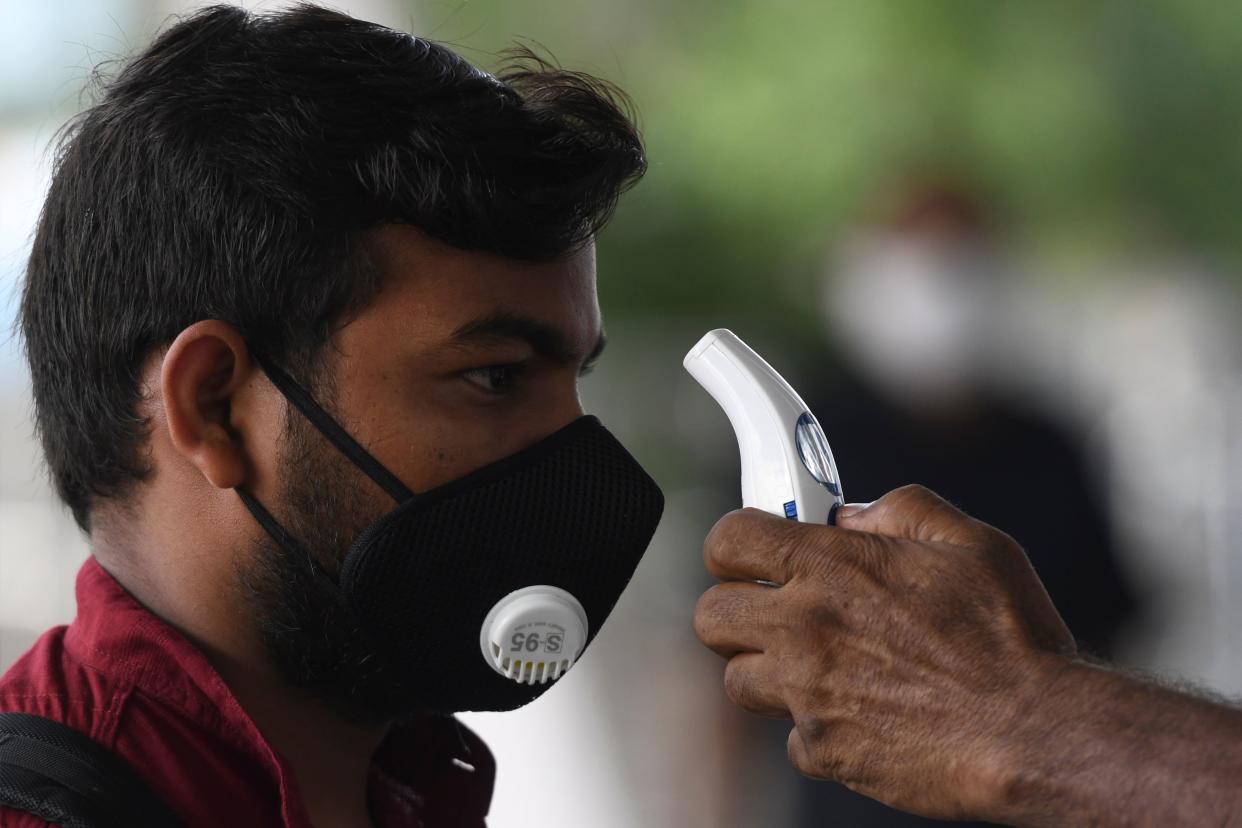Temperature checks upon arrival for travellers has 'incremental value': expert

Air travellers leaving Canada or arriving on international flights can expect to be met with a temperature check at their point of departure in the airport in the coming months, as the federal government steps up the effort to slow the spread of COVID-19. But one medical expert thinks airlines and airports around the world should be involved in monitoring temperatures in order to make an impact on the spread of the virus.
Prime Minister Justin Trudeau announced on Friday a phased approach to checking passengers at Canadian airports, starting with those coming to the country, followed by those leaving to the country, and finally people travelling within it. He described it as “another layer of protection."
Travellers who have a fever will be forbidden from boarding a flight.
Dr. David White is a professor with the Family & Community Medicine department at the University of Toronto. He explains when someone is showing a temperature, it means they are sick, usually due to an infection. In the context of COVID-19, it is a common symptom.
“To be practical, you’d hope those people shouldn’t be getting on a plane at all,” he tells Yahoo Canada. “You’d hope they’d be screened before they get on a plane.”
He adds that the airline industry should have a vested interest in screening people at the point before they board, since airplanes are a vulnerable setting for the spread of the virus.
“Airplanes already have that reputation...they don’t want to become flying versions of cruise ships, known as a vector that spreads around the world,” he says.
In Canada, Canadian Air Transport Security Authority personnel will conduct temperature checks on travellers on an outbound flight or reporting for work, prior to entering the security screening queue. If someone is found to have an elevated temperature, they will be sent to a dedicated location that respects physical distancing guidelines for a short, ten-minute rest period, followed by a second temperature reading. If they’re confirmed to have an elevated temperature, and unless the passenger has a medical certificate explaining a medical or physical condition for that elevated temperature, they will be denied entry into the critical restricted area.
While that will help identify people who are sick, it won’t identify everybody who has COVID-19 who is asymptomatic, since there isn’t a fever to monitor.
Hong Kong International Airport is being lauded for its thorough steps in screening passengers. All travellers flying into the city are taken in a shuttle bus to a temporary specimen collection facility for a deep throat saliva sample. They then must wait in a designated holding area until the results are back, which takes about seven hours. There’s also a mandatory 14-day quarantine period, and travellers must download a tracking app and wear a tracking bracelet.
White says taking a temperature has “incremental value,” though a larger, comprehensive approach involving tracking is more effective.
Transport Minister Marc Garneau said screening will start later this month for passengers arriving in Canada. It will be phased in for domestic travellers at Canada’s four biggest airports by the end of July, then extended to the next 11 largest airports by the end of September.
Anyone found to have a fever will be prevented from boarding, but will be allowed to rebook their flight, at no additional cost, as long as it’s at least 14 days later.



